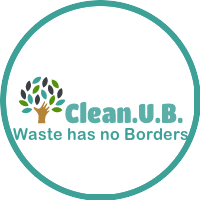1. Plastic waste can take up to 1000 years to decompose
Affordable, durable, and flexible, plastic is ubiquitous in our modern lives, whether it's packaging, clothing, or beauty products. However, it is thrown away on a large scale: more than 280 million tonnes of short-lived plastic products end up in the waste every year.
|
|
2. Plastic contributes to the climate crisis
The production of plastic is one of the most energy-intensive production processes in the world. The material is made from fossil fuels such as crude oil, which are converted into polymer by heat and other additives. In 2019, plastic generated 1.8 billion tons of greenhouse gas emissions, or 3.4% of the global total.
| 3. Key Responsible: Packaging, Agriculture and Fashion
The packaging sector is the largest cause of single-use plastic waste in the world. About 36% of all plastic produced is used in packaging, such as single-use plastic food and beverage containers, with 85% of which ends up in landfills or is improperly recycled.
|
4. 500,000 tons of plastic microfibers end up in the oceans every year
Microplastics are small pieces of plastic up to 5 mm in size. They come from all kinds of products, from bands to beauty products, which contain microbeads, tiny particles that are used as exfoliants. Synthetics are another important source. Every time clothes are washed, small plastic fibers (or microfibers) are released, which is also a form of microplastics. As a result, around 500,000 tonnes of plastic microfibres end up in the oceans every year, the equivalent of nearly 3 billion polyester shirts.
| 5. There is a resolution to put an end to plastic pollution
In 2022, United Nations member states passed a resolution to end plastic pollution. An intergovernmental negotiating committee is currently developing a legally binding instrument against plastic pollution, with the aim of finalising it by the end of 2024. Discussions focused on measures that take into account the entire life cycle of plastics, from extraction and product design to waste generation and management, eliminating waste before it is created, as part of a thriving circular economy.
|
